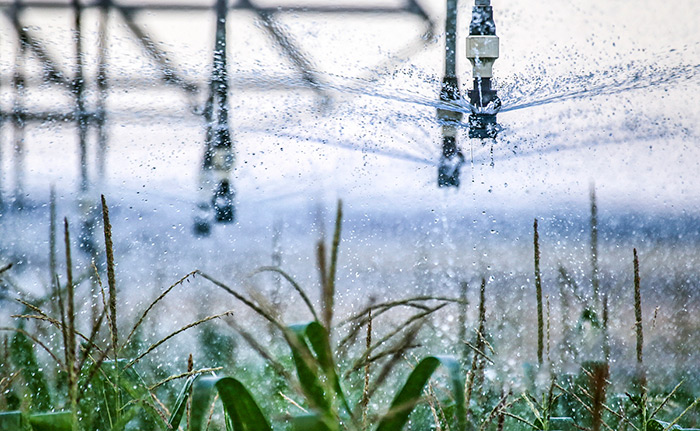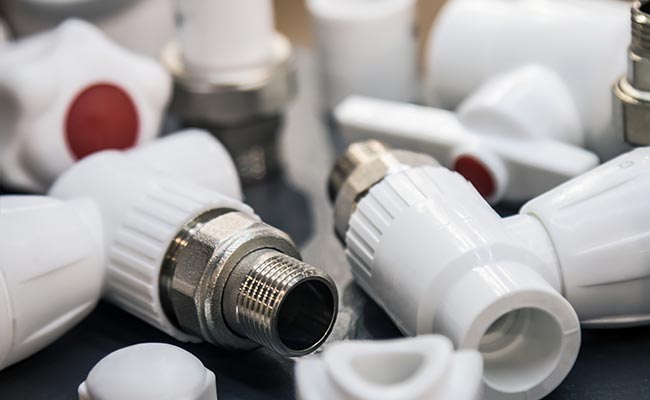You need to control water flow in your system. But choosing the wrong type of valve can lead to leaks, corrosion, or a valve that seizes up when you need it most.
The main purpose of a PVC ball valve is to provide a simple, reliable, and corrosion-proof way to start or stop the flow of cold water in a pipeline with a quick quarter-turn of the handle.
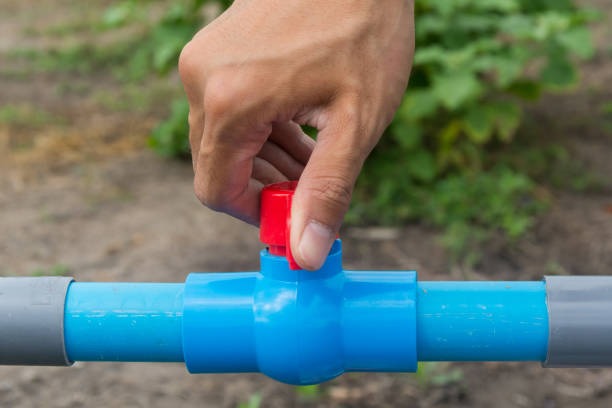
Think of it as a light switch for water. Its job is to be either fully on or fully off. This simple function is vital in countless applications, from home plumbing to large-scale agriculture. I often explain this to my partners, like Budi in Indonesia, because his clients need valves that are both affordable and completely reliable. They can’t afford the failures that come from using the wrong material for the job. While the concept is simple, understanding where and why to use a PVC ball valve is key to building a system that lasts.
What are PVC ball valves used for?
You see affordable plastic valves but wonder where they can be used. You worry they aren’t strong enough for a serious project, leading you to overspend on metal valves that might rust.
PVC ball valves are primarily used for cold water applications like irrigation, swimming pools, aquaculture, and general water distribution. Their key advantage is complete immunity to rust and chemical corrosion from water treatments.
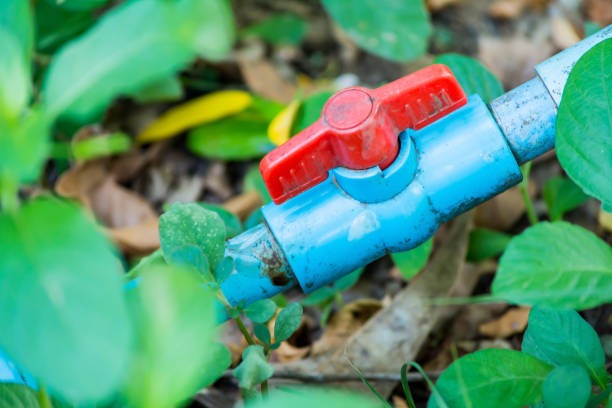
The resistance of PVC to corrosion is its superpower. This makes it the perfect choice for any environment where water and chemicals would destroy metal. For Budi’s customers who run fish farms, metal valves are not an option as salt water would corrode them quickly. A PVC valve, on the other hand, will work smoothly for years. It’s not about being a “cheap” alternative; it’s about being the correct material for the job. They are built for high-demand use, a reliable workhorse for controlling water flow in systems where the temperature will not exceed 60°C (140°F).
Common Applications for PVC Ball Valves
| Application | Why PVC is Ideal |
|---|---|
| Irrigation & Agriculture | Resists corrosion from fertilizers and soil moisture. Durable for frequent use. |
| Pools, Spas & Aquariums | Completely immune to chlorine, salt, and other water treatment chemicals. |
| Aquaculture & Fish Farming | Will not rust in salt water or contaminate the water. Safe for aquatic life. |
| General Plumbing & DIY | Inexpensive, easy to install with solvent cement, and reliable for cold water lines. |
What is the main purpose of a ball valve?
You see different valve types like gate, globe, and ball valves. Using the wrong one for shutoff can lead to slow operation, leaks, or damage to the valve itself.
The main purpose of any ball valve is to be a shutoff valve. It uses a 90-degree turn to go from fully open to fully closed, providing a fast and reliable way to stop flow completely.
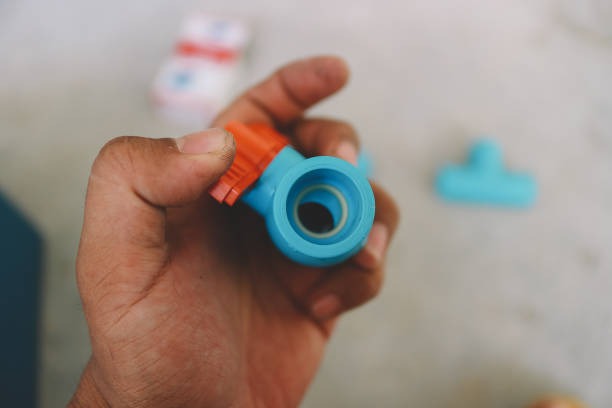
The design is brilliantly simple. Inside the valve is a rotating ball with a hole, or bore, through the center. When the handle is parallel to the pipe, the hole is aligned, allowing water to pass with almost no restriction. When you turn the handle 90 degrees, the solid part of the ball blocks the path, stopping the flow instantly and creating a tight seal. This quick action is different from a gate valve, which requires many turns to close and is very slow. It is also different from a globe valve, which is designed to regulate or throttle flow. A ball valve is designed for shutoff. Using it in a half-open position for a long time can cause the seats to wear unevenly, which may eventually lead to a leak when it’s fully closed.
What is a PVC valve used for?
You know you need to control water, but you only know about ball valves. You might be missing a better solution for a specific problem, like preventing water from flowing backward.
A PVC valve is a general term for any valve made from PVC plastic. They are used to control, direct, or regulate the flow of fluid, with different types existing for different functions like shutoff or backflow prevention.
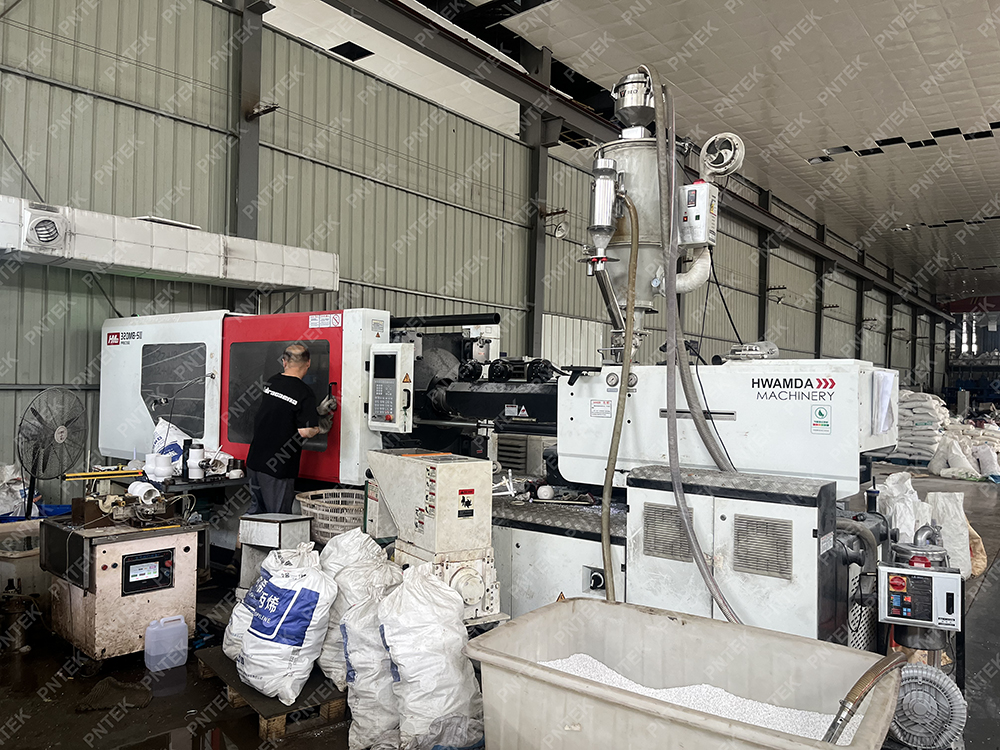
While the ball valve is the most common type, it is not the only hero in the PVC family. PVC is a versatile material used to make a range of valves, each with a specialized job. Thinking you only need a ball valve is like thinking a hammer is the only tool you need in a toolbox. As a manufacturer, we at Pntek produce different types of PVC valves because our customers have different problems to solve. Budi’s clients who install pumps, for example, need more than just an on/off switch; they need automatic protection for their equipment. Understanding the different types helps you select the perfect tool for each part of your plumbing system.
Common Types of PVC Valves and Their Functions
| Valve Type | Main Function | Control Type |
|---|---|---|
| Ball Valve | On/Off Shutoff | Manual (Quarter-Turn) |
| Check Valve | Prevents Backflow | Automatic (Flow-Activated) |
| Butterfly Valve | On/Off Shutoff (for large pipes) | Manual (Quarter-Turn) |
| Foot Valve | Prevents Backflow & Filters Debris | Automatic (at suction inlet) |
What is the function of a ball check valve in PVC pipe?
Your pump struggles to start or makes a clunking noise when it shuts off. This is because water is flowing backward through the system, which can damage the pump over time.
The function of a ball check valve is to automatically prevent backflow. It allows water to flow in one direction but uses an internal ball to seal the pipe if the flow stops or reverses.
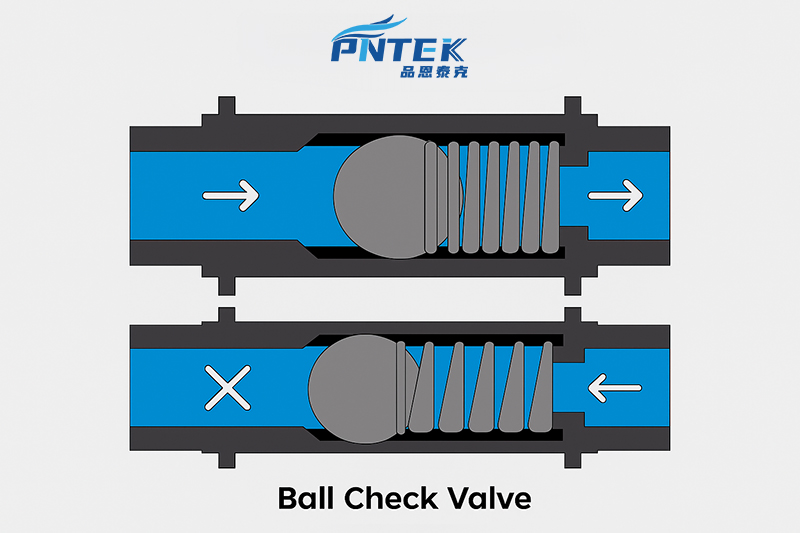
This valve is your system’s silent guardian. It is not a ball valve that you operate with a handle. It is a “check valve” that uses a ball as its closing mechanism. When your pump pushes water forward, the pressure lifts the ball out of its seat, allowing water to pass. The moment the pump shuts off, the water pressure on the other side, along with gravity, immediately pushes the ball back into its seat. This creates a seal that stops water from draining back down the pipe. This simple action is critical. It keeps your pump primed (full of water and ready to go), prevents the pump from spinning backward (which can cause damage), and stops water hammer, a destructive shockwave caused by a sudden flow reversal.
Conclusion
A PVC ball valve provides simple on/off control for cold water. Understanding its purpose, and the roles of other PVC valves, ensures you build an efficient and reliable system.
Post time: Aug-01-2025


